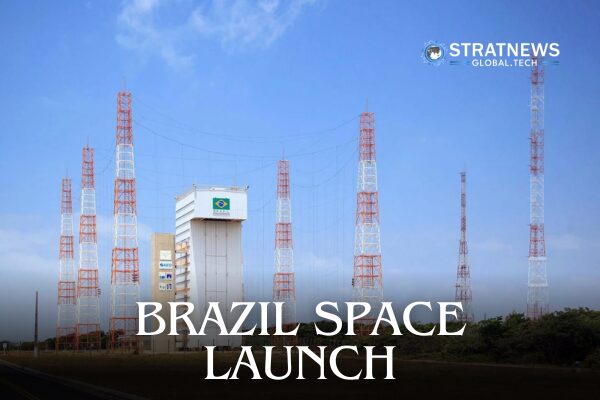Brazil is set to enter a new era in its space journey, with the country getting ready to conduct its first commercial orbital rocket launch soon.
The launch which was scheduled for Nov 22, has now been pushed to December 17th.
A top diplomat has confirmed “The decision to extend the launch window was made “jointly and based on technical assessments.” Adding, “General Coordinator of the Operation, Rogério Moreira Cazo, explains that the tests to validate the avionics systems indicated the “need for improvements to the vehicle before the flight,” he said, stating that adjustments like this are common in inaugural missions.
In addition, the extension of the operational period will also allow for improvements in the processing of signals collected from the spacecraft. These signals are used in performance evaluation during launch.
The mission will lift off from the Alcântara Launch Center, Brazil’s premier spaceport located in the northeast, close to the equator.
A senior Brazilian diplomat noted that while Brazil has a long history of suborbital missions, this was the nation’s first attempt to place a payload into orbit through a commercial venture. South Korea’s Innospace launching its HANBIT-Nano rocket, is carrying a combination of domestic and international payloads.
“The objective is to firmly position Brazil within the global commercial launch market,” the diplomat said. “Our technical capacity and policy framework are already in place. What we’re doing now is demonstrating that capability on an orbital scale.”
The choice of Alcântara is strategic: rockets launched from near-equatorial sites benefit from natural rotational velocity, resulting in fuel savings of nearly 30 percent, a competitive advantage that has attracted global attention.
India–Brazil Space Partnership Gains Momentum
The historic launch comes at a time when space collaboration between India and Brazil is expanding rapidly. During Prime Minister Narendra Modi’s recent visit to Brazil for the BRICS Summit, leaders of both nations agreed to deepen cooperation in satellite launches, ground-station support, climate monitoring, ocean observation, and advanced space research.
According to Brazilian officials, Indian Space Research Organisation (ISRO) and the Brazilian Space Agency (AEB) are already exploring the possibility of India using Alcântara for future missions. The cost-efficiency offered by the equatorial launch site has been a major point of discussion in recent high-level interactions.
AEB’s ground stations in Alcântara and Cuiabá are already integrated into India’s mission ecosystem, providing tracking and support for major projects such as Chandrayaan-1, Megha-Tropiques, Mangalyaan, and Astrosat.
Cooperation between the two nations is not new. In 2014, India and Brazil signed an agreement enabling the installation of a Brazilian earth station dedicated to receiving data from Indian satellites. ISRO has since been assisting Brazil in operating the facility and analysing remote-sensing data, skills that Brazilian researchers now employ in national scientific programs.
The partnership reached another milestone in 2021 when Brazil’s Amazonia-1, its first fully home-built Earth observation satellite, was launched aboard ISRO’s PSLV. The mission highlighted the countries shared interests in climate monitoring, environmental science, and low-cost access to space.
A Shared Commitment to Peaceful Space Use
Both countries have consistently advocated for keeping outer space a realm devoted to peaceful purposes. BRICS ministers have repeatedly called for global negotiations to prevent the deployment of weapons in space, backing the draft treaty on the Prevention of the Placement of Weapons in Outer Space submitted to the Conference on Disarmament.
Their stance comes amid growing concerns that space is increasingly becoming a contested domain. India and Brazil, along with the wider BRICS community, have pushed for transparency and confidence-building measures to ensure that space remains a cooperative environment supporting science, development, and global security.


